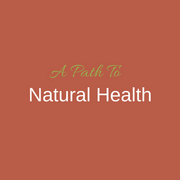Top 5 Common Food Allergies Among Children

Food allergies are a worry for parents when introducing new food to their children. While most allergies are associated with immediate, anaphylactic reactions, their effects are long-lasting and go unrecognized without closer inspection. Below are most common food allergies children experience.
5 Common Food Allergies Among Children
1. Peanuts & Tree Nuts
Although peanuts are legumes and not tree nuts, reactions to both are the same. A child may be allergic to peanuts but can still eat tree nuts, and vice versa. Reactions occur within minutes or hours and include sneezing, itchy skin or throat, nausea, and respiratory problems. These are signs of anaphylaxis and require immediate treatment.
2. Milk
Children who are sensitive to milk exhibit a variety of reactions. The more extreme and obvious ones include vomiting, gassiness, hives, and breathing problems. While many children outgrow a milk allergy as their immune system develops, they may become lactose intolerant. Such reactions include abdominal pain, diarrhea, or eczema-like rashes.
3. Eggs
 The proteins found in egg whites are what most children react to when they’re allergic. Within the first few minutes or hours, they experience hives, stomach pains, nausea, and headaches. Avoiding eggs and foods that use an egg wash or glaze, such as breads or pies, is helpful. However, there are cases when children can eat foods with eggs baked in.
The proteins found in egg whites are what most children react to when they’re allergic. Within the first few minutes or hours, they experience hives, stomach pains, nausea, and headaches. Avoiding eggs and foods that use an egg wash or glaze, such as breads or pies, is helpful. However, there are cases when children can eat foods with eggs baked in.
4. Wheat & Gluten
Children who are allergic to wheat aren’t necessarily allergic to gluten. Some children can eat gluten products such as rye or barley but are allergic to the protein that is specific to wheat. Symptoms range from hives to anaphylaxis. Children who are gluten-intolerant have celiac disease, which is different from a food allergy as it involves the autoimmune system. These symptoms include chronic diarrhea and weight loss.
5. Soy
Although soy does share the legume family with peanuts, they are made up of different proteins that trigger allergic reactions. Symptoms include hives, itchiness in the mouth, and diarrhea. Some infants who are allergic to milk are also allergic to soy. Like milk, children can outgrow a soy allergy past age three.
Offering 25 years of experience in naturopathic treatments and medicine, the doctors of A Path to Natural Health in Issaquah, WA, believe in tackling food allergies from the inside out through holistic remedies and immune-boosting treatments. Preparing and strengthening children’s immune systems early on is an essential way of ensuring they’re healthy for life. Learn more about their program for food allergies online or call (425) 270-3047.
About the Business
Have a question? Ask the experts!
Send your question

